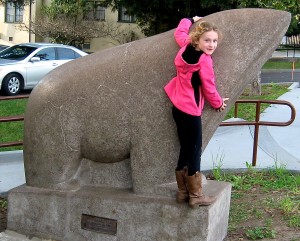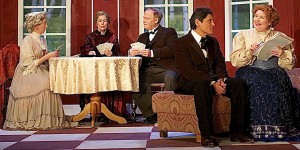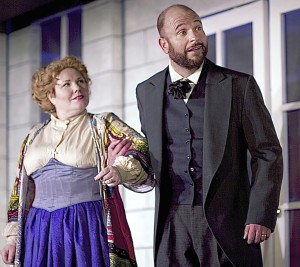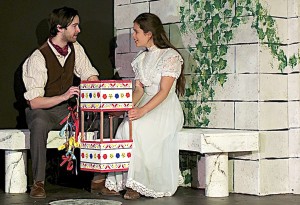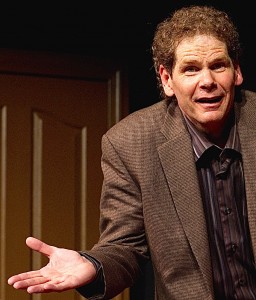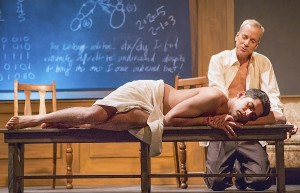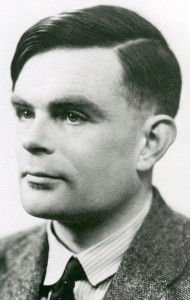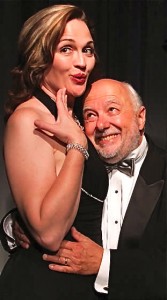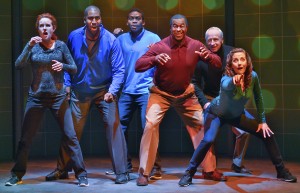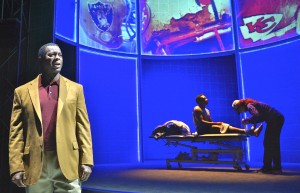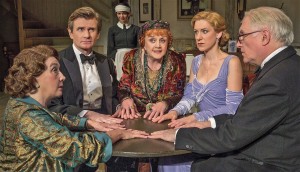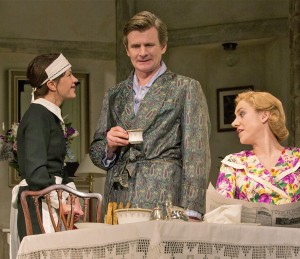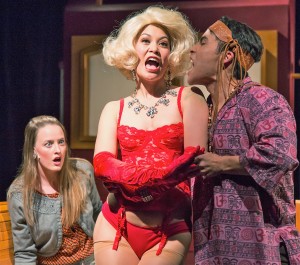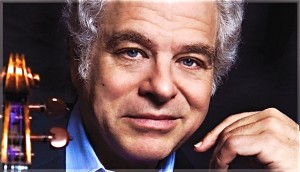“Public art,” country music singer and visual artist Terry Allen once decreed, “is for the birds.”
Well, yes ‘n’ no.
“Our fine-feathered friends may be great fans of artwork, for a good reason,” I find myself countering, “but even when they blitz it with their white bombs, it’s still art that human beings can appreciate.”
In case you haven’t guessed, I’m among those humans.
I periodically meander into places not far from my Ross Valley home to re-appreciate stuff I’ve treasured before.
My 8-year-old granddaughter often tags along.
I just like looking. Hannah’s favorites are those she can climb.
So, naturally, she’s long been partial to Sugarfoot, the antlered stag that stands tall on the lawn outside San Anselmo’s Town Hall.
She’s been climbing on the anatomically correct metallic critter ever since she was 3 — so her rump has greatly added to the sheen of the sculpture’s back.
She originally decided Sugarfoot was a lost Santa reindeer who’d chosen my adopted hometown as his.
And was magical.
Now she just considers him a handy place from which she can hang upside down.
Hannah has also enjoyed caressing the abstract marble Bufano bear that stands on a pedestal in front of the Ross Town Hall, a gift from residents Jerry and Peggy Flax.
I, too, like the bear — and most of the work by San Francisco sculptor Benny Bufano.
But I also relish that he was a blunt-speaking peacenik.
He reportedly, after an accident severed it, sent half his “trigger finger” to Woodrow Wilson in protest of World War I.
Years later, after Martin Luther King Jr. and Robert Kennedy had been assassinated, he sculpted “St. Francis of the Guns” out of melted-down weapons turned in by citizens.
I’m pretty sure his Ross bear bears no political statement, though.
The artist, in a tale that might be apocryphal, purportedly advised the town on the animal’s care and feeding, including an admonition to “polish regularly with Carnauba auto wax.”
Early this year, Ross hired a contractor to repair cracks and other damage in the marble. Since then, the town’s prohibited kids from scaling it, even for photos.
Before the fixes, however, we managed to snap a couple of Hannah giving it, logically, a big bear hug.
Since she’s a consummate animal freak (no surprise — her abode, where a barnload of horses used to board, is now home to a dog, a cat, two goats and two pet lizards), she also adores Al Guibara’s bronze statue of Blackie the horse on a Tiburon pasture.
She loves, too, hanging out in Imagination Park — land of a gadzillion selfies, adjacent to San Anselmo’s town hall — with the Lawrence Noble pop-art bronze statues of film characters Yoda and Indiana Jones.
Both are life-sized, although Indy’s about 6-foot-3 and Yoda merely 2-1/2 feet high.
Marin’s most famed artwork, in my view, is the Civic Center, an imaginative structure in San Rafael built after the death of Frank Lloyd Wright, who designed it.
The golden spired, sky-blue roofed tourist attraction — a location for the sci-fi movie “Gattaca” and Lucas’ first feature-length film, “THX” — was Wright’s last commission and is somehow still avant-garde today, 53 years after the first section was completed.
I cherish it.
Almost as much as I hate most monochromatic oils hanging in museums that demand I take a wild guess at what bizarre sense of beauty an artist had in mind while slapping paint onto a canvas.
The truth is, virtually any art is problematic for me because it can’t be attached to my refrigerator with a magnet like Hannah’s hand-drawn thingies.
Still, she and I often jointly enjoy examining the charming, playful murals in Fairfax that adorn the tall outer wall of a Bolinas Avenue store or the short wall at the nearby baseball field, as well as the colorful obelisk in front of the Ross Valley Fire Station in downtown San Anselmo.
Not to mention the sky paintings made by jet planes or shifting clouds or blinking stars.
Humorist Dave Barry once defined public art as that which “is purchased by experts who are not spending their own personal money.”
He may be right.
But writer Oscar Wilde was definitely wrong when he proclaimed, “All art is quite useless.”
It’s fun.
Contact Woody Weingarten at voodee@sbcglobal.net or check out his blog at www.vitalitypress.com/


